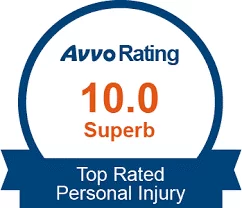Once emergency medical responders arrive at an accident, things will begin happening fairly quickly. Depending on the severity of your child’s injuries, EMT personnel may administer medical assistance immediately. Within minutes, your child may be in an ambulance en route to the nearest emergency room. The chaos may be terrifying, but here’s how to move forward as calmly as possible.
Dealing the EMTs at the Accident Scene of Your Injured Child
Unfortunately, you’ve got an injured child to consider, and she will be your top priority when the EMTs arrive. But don’t forget that you, too, maybe injured. Particularly if the EMTs or someone mention you seem to have been hurt, get checked out. Don’t dismiss their concern out of hand.
Yes, as we previously advised, you will want to gather evidence, talk to police and witnesses. But your child’s and your health come first. Solicit the other parent, family member, or friend to help you.
Indeed, keep in mind that even if you don’t have any physical injuries, you’re likely to be upset and disoriented (at a minimum), so the sooner you can get people to help, the better off you will be.
Your Injured Child At the Hospital
Here’s the good news: The doctors and emergency personnel are well-trained and eager to help. The bad news is that even the most competent people sometimes make mistakes. CBS reports that as many as 10 percent of patients in emergency rooms become victims of medical error, some of which can be serious or fatal. Thus, when you’re placing your injured child in the care of these professionals, we recommend a stance of cautious trust.
Take comfort in their abilities, but be vigilant about your child’s care, and don’t be afraid to insert yourself if you observe any warning signs. Some tips that can help:
- Ask lots of questions and take notes. Make sure you understand exactly what procedures the physicians plan to do with your child and why—as well as any risks involved. Ask about the doctor’s experience in these procedures. Find out which medicines will be administered and what those medicines treat. Have a trusted person with you, to help remember what you’ve heard, and to ask follow-up questions. (This is even more important if you were injured.)
- Document everything. Keep track of medical procedures, drugs are given, and so forth. This will help with doctors involved in follow-up medical care, and it may eventually factor into your compensation and settlement.
- Observe attending physicians and nurses. How is their bedside manner? Do they communicate well with you and with your child? Watch in particular for signs of fatigue; medical professionals work long shifts, and fatigue can increase the risk of medical error by more than 20 percent. Express any concerns politely but firmly, and ask for a shift change if you’re uncomfortable with the people tending your child. Avoid being rude to medical personnel. Even the best doctor performs less effectively after someone’s been yelling at them.
- Monitor your child during recovery. If your child undergoes surgery, especially, try to have someone at her bedside at all times to monitor the after-effects of anesthesia or other medications. The doctors and nurses will be monitoring as well, but they can’t be in the room 24/7. Call on friends and family to watch with you until your child is out of immediate danger.
If your child’s been injured in an accident, you’ll want to involve a good personal injury attorney as soon as possible. For a free consultation, call Greathouse Trial Law at (678) 310-2827.


